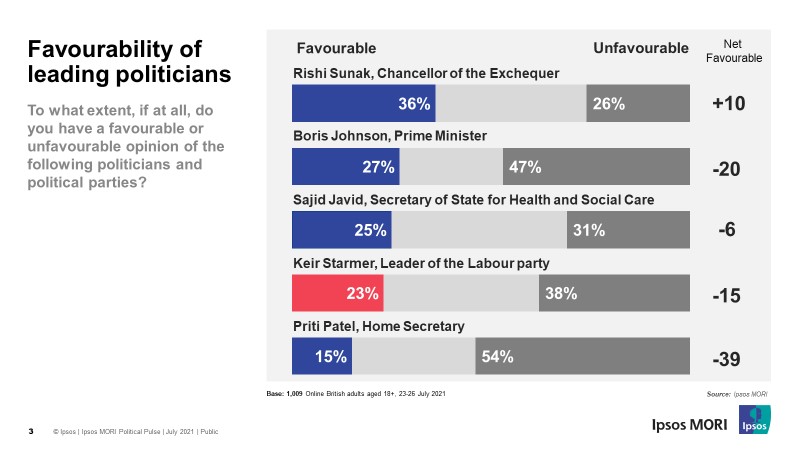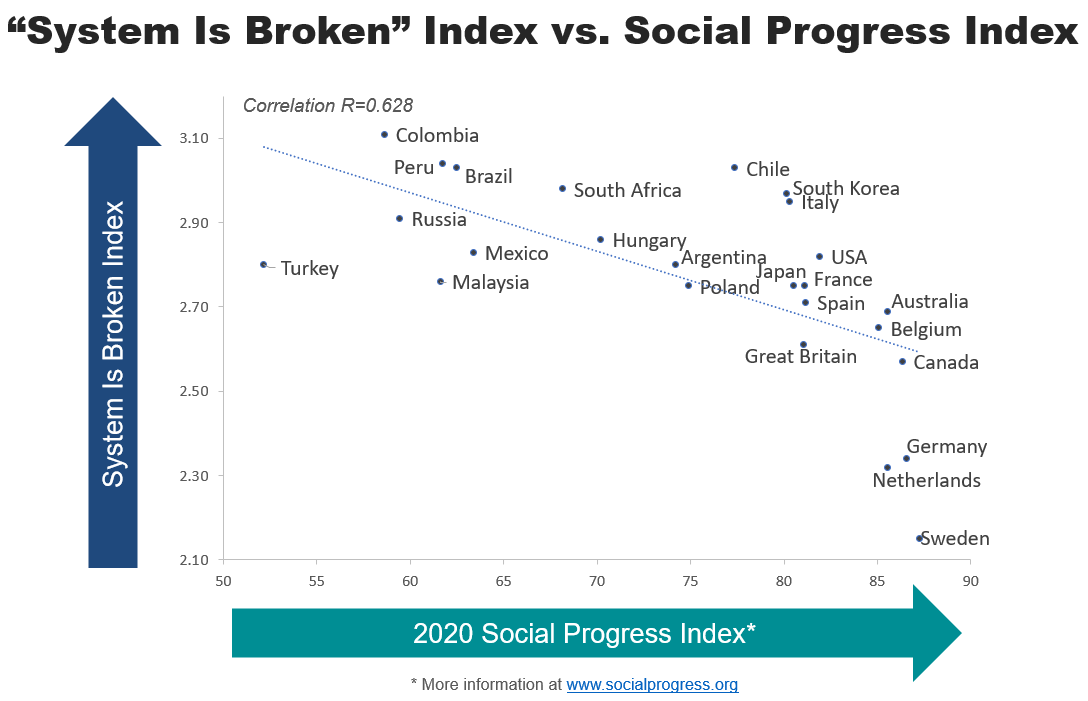Ipsos Research Highlights - 6 August 2021
Britons more hopeful that the country will be stronger when it gets through the pandemic, but concerns about another variant and economic impacts remain
Almost half (47%, up from 39% last year) believe Britain will be stronger when it gets through the pandemic, even though it will be tough. Top concerns for the rest of the year include the spread of a new vaccine-resistant variant (80%) and another wave of cases (79%). Reflecting the concerns of the public, 4 in 10 (42%) say the Government should continue to prioritise people’s health over the economic health by having more restrictions if the virus continues to spread, while 15% prioritise reducing restrictions to help the economy, and another 4 in 10 (38%, up from 32% in November) believing the two concerns should be given equal weight.
Favourability towards Boris Johnson falls to lowest level since October
Favourability towards Boris Johnson has fallen again this month and 47% are now unfavourable – his worst rating in this series since October last year. On delivering specific policy areas, Brexit is seen as Boris Johnson’s Government’s strongest area, with 38% saying they have done a good job at taking Britain out of the EU and 33% think the UK's decision to leave the EU has had a positive impact on the country.

Latest REACT-1 study findings show COVID-19 infection rates three times lower for double vaccinated people
Our latest findings from the REACT-1 study with Imperial College London show that infections have increased, with 1 in 160 people infected and prevalence has in a substantial increase in prevalence in all age groups under the age of 75 years. Although growth appears to be slowing and double vaccinated people were estimated to have around 50 to 60% reduced risk of infection compared to unvaccinated people.
Populist, anti-elite and nativist views linked to globally widespread broken-system sentiment
Perceptions of a broken political and economic system prevail in most countries; on average, 56% agree their country’s society is broken. Since 2016, broken-system sentiment has gained ground most in Japan, South Africa, Sweden, the United States and Argentina. In Britain however the broken-system sentiment has decreased the most. This sentiment has also been highly linked to populist/anti-elite sentiment – most prevalent in Chile, Hungary, Colombia, Peru, and Russia.

The Future of Fats, Sugar and the Obesity Crisis
This report looks at the causes of and possible solutions to the obesity pandemic, and raises essential questions about how policymakers and the food industry must respond to help individuals make healthier dietary choices and tackle what is a truly deadly and constantly developing problem. On Thursday 22 July, we welcomed expert speakers to discuss the findings of our new report. You can watch the full recording below.
Half say they would be very likely to follow instructions to self-isolate if pinged
As the Government give people more freedom to choose how to protect themselves from the virus and as the vaccine programme continues, there has been a significant increase in the proportion of Britons who find Government communications clear. Seventy-two per cent say they are likely to comply with instructions given by the NHS app. Only 1 in 5 (19%) are unlikely to follow instructions.
In other news
The Dutch are the most physically active nation reporting almost two hours per day of physical exercise or team sports, whilst the Brazilians are the least spending three hours per week doing physical exercise on average (26 minutes per day).
As ever, please do let us know what you think, and I hope you find something to interest you.
Ben Page
Chief Executive, Ipsos
[email protected]

